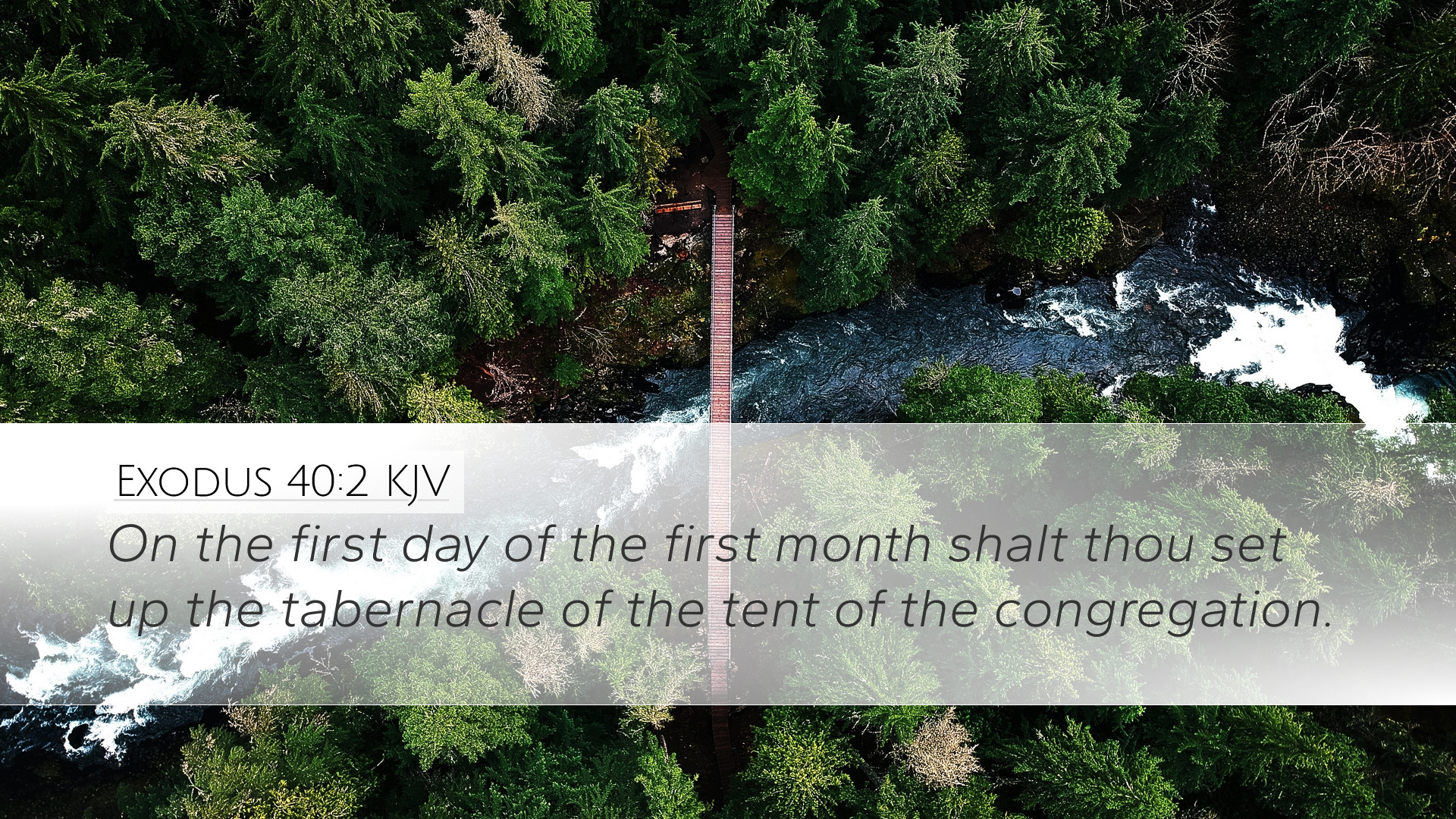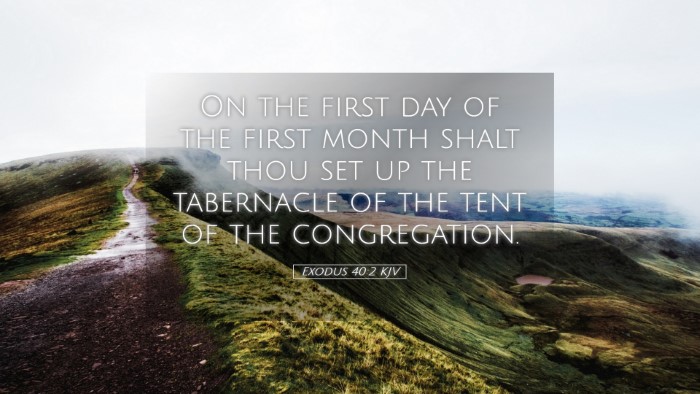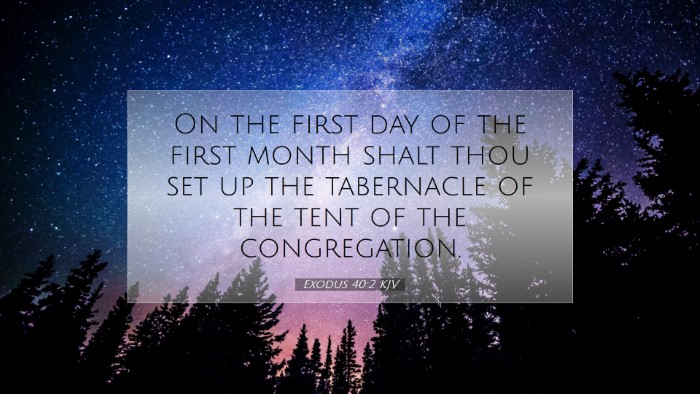Exodus 40:2 - Commentary Overview
Verse: "On the first day of the first month, you shall set up the tabernacle of the tent of meeting."
Introduction
The concluding chapter of the Book of Exodus presents a momentous occasion in the history of Israel, where God’s dwelling among His people is realized. The verse marks a significant transition for the Israelites as they prepare for the establishment of the tabernacle. This commentary synthesizes insights from esteemed public domain scholars to explore the theological, historical, and practical implications of Exodus 40:2.
Theological Significance
God’s Desire to Dwell Among His People: The divine command to set up the tabernacle emphasizes God's intention to dwell in the midst of His people. According to Matthew Henry, this act signifies God's commitment to Israel, showcasing that He desires a close relationship with them, symbolized by the physical presence of the tabernacle.
Symbol of God’s Presence: Albert Barnes notes that the tabernacle serves as a symbol of God’s presence and provision. It is not merely a physical structure but represents the spiritual fellowship believers can have with the Lord.
Historical Context
The command in Exodus 40:2 comes after a series of significant events; from the Exodus itself, through the giving of the Law, to the creation of the sanctuary. Adam Clarke elaborates that the instruction to set up the tabernacle on the first day of the first month establishes a new beginning for Israel. This marks the start of a new covenant relationship anchored in worship and community.
- Chronological Significance: The first month corresponds to the time of the Passover, which signifies deliverance.
- Covenant Renewed: Setting up the tabernacle parallels the renewal of covenant promises, emphasizing God's ongoing relationship with Israel.
- Preparation for Worship: The meticulous preparations indicate the seriousness with which God’s people are to approach worship.
Literary Structure
The entire chapter of Exodus 40 provides a detailed description of the tabernacle's construction and the instructions for its implementation, echoing a consistent theme present throughout Exodus. Matthew Henry highlights that the narrative sequence culminates in God’s glory filling the tabernacle once it is erected, reflecting God's approval and presence.
Spiritual Lessons
Preparation for God’s Presence: The very act of setting up the tabernacle can be seen as a call to prepare our hearts for God's presence. This resonates with the New Testament call to being living temples (1 Corinthians 6:19), urging believers to maintain a readiness for divine encounters.
The Importance of Obedience: The command to establish the tabernacle was met with obedience. Albert Barnes stresses that obedience to God's commands is fundamental to experiencing His presence and blessing. This underscores the necessity of aligning one's life with God’s will.
The Community Aspect
In setting up the tabernacle, the community of Israel is called to participate in a collective act of worship. Adam Clarke emphasizes the communal nature of worship and the role it plays in solidifying the identity of the Israelites as God's chosen people.
- Shared Experience: The process of setting up the tabernacle involves the entire nation, reinforcing their unity in worship.
- Covenant Community: This act serves as a reminder of their covenantal relationship which they must uphold together.
Conclusion
Exodus 40:2 stands as a pivotal moment in the spiritual formation of Israel, encapsulating themes of God's desire for closeness, obedience, community, and worship. The insights derived from the commentaries of Matthew Henry, Albert Barnes, and Adam Clarke collectively underscore the rich tapestry of truth found in this verse. For pastors, students, theologians, and Bible scholars, it serves as a profound reminder of God’s unwavering commitment to dwell among His people and the call for the Church today to prepare their hearts as sacred spaces for His presence.


